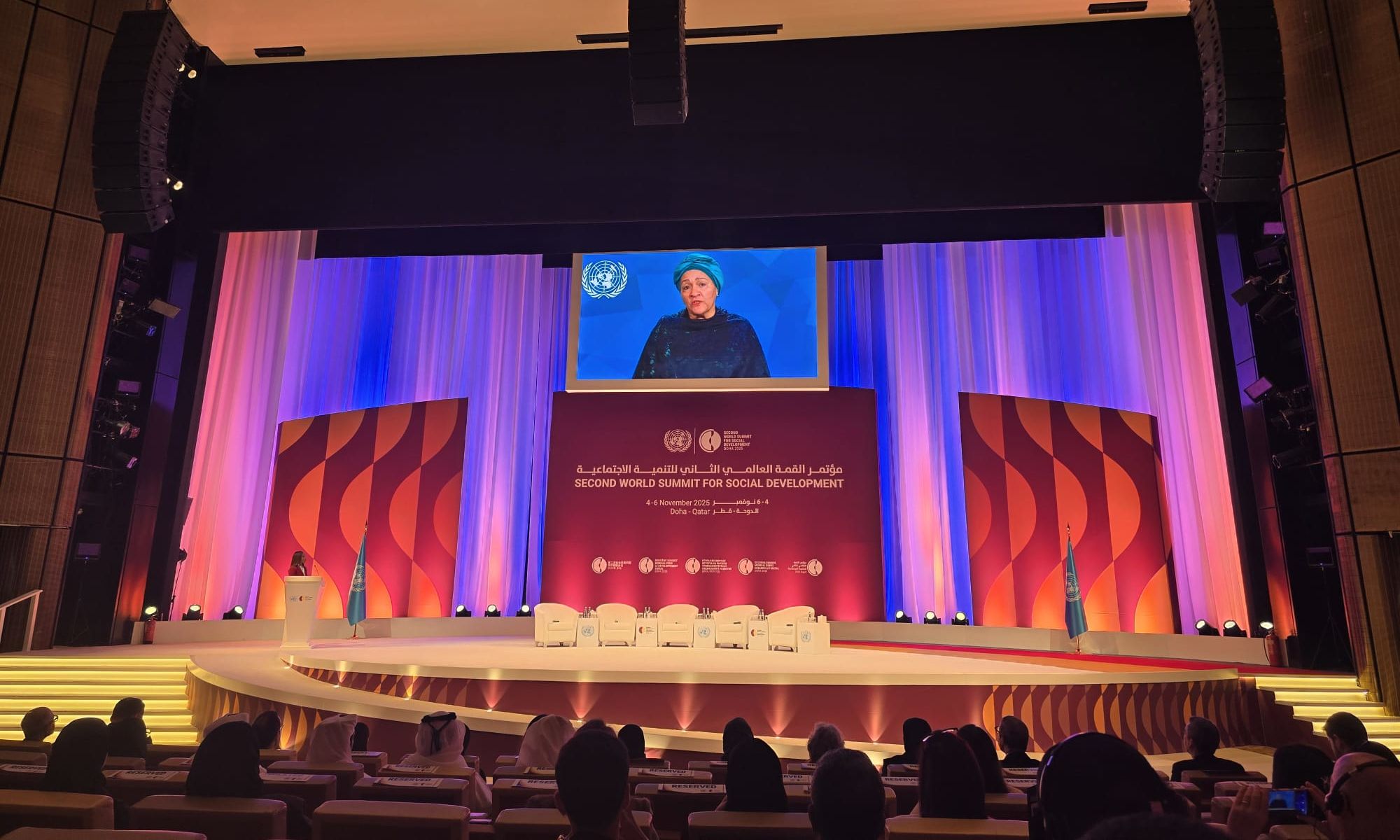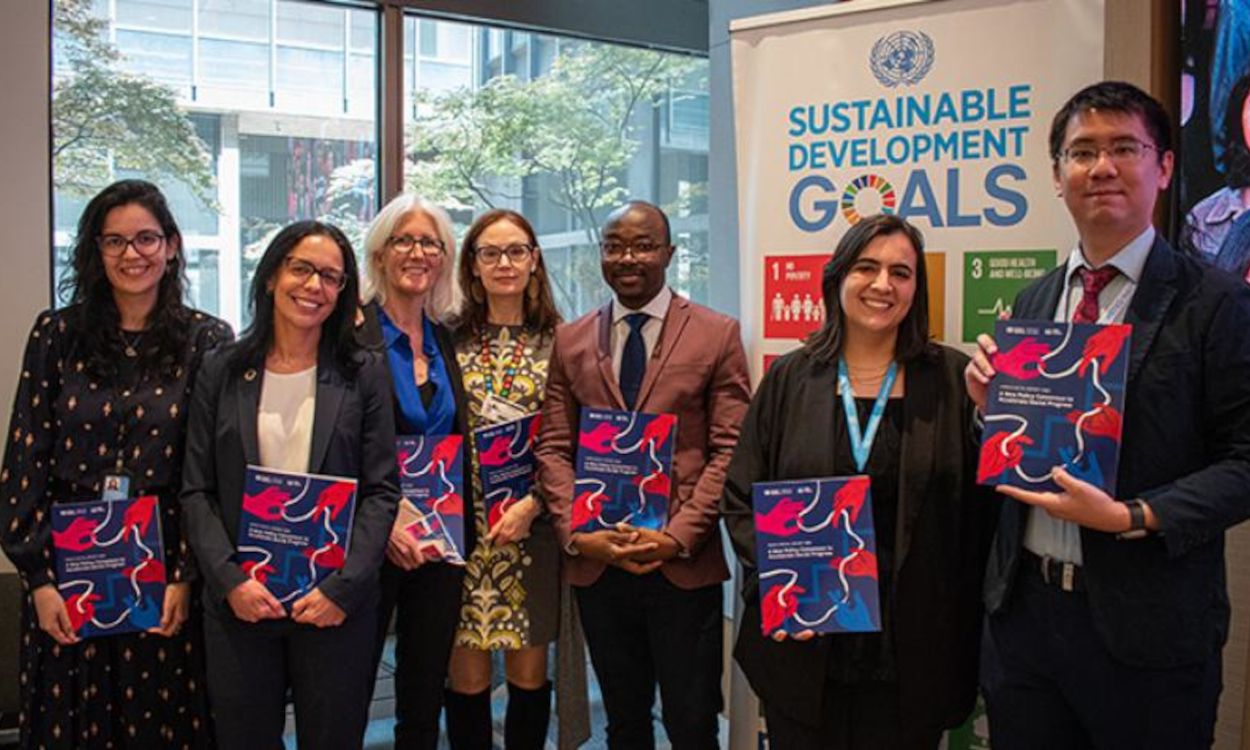“Starting a New Chapter in Hong Kong Social Welfare” Summit 2023

The inaugural Ceremony of Hong Kong Social Welfare Sector Heart to Heart Joint Action was held on May 29, 2023.
The event was jointly organized by the Labour and Welfare Bureau (LWB), the Social Welfare Department and the Hong Kong Social Welfare Sector Heart to Heart Joint Action, bringing together local, Mainland and international stakeholders to share and exchange views on social welfare issues.
Dr.Sang-Mok Suh, the Global President of ICSW, also attended the event and made a speech on three issues of social welfare that are faced and to be handled jointly by the international community these days.
Please find below his speech at the Summit for your reference.
Speech at the Hong Kong Social Welfare Summit 2023
Sang-Mok Suh, President ICSW
May 29, 2023

It is my great pleasure to attend and deliver a speech in this important event, Hong Kong Social Welfare Summit 2023. First of all, I would like to congratulate the host of this conference for picking the right theme at the right time.
As we all know, the world is going through an important period of transition after the 3-year trauma of COVID-19. The global supply chain has been seriously hampered due to the disturbance in world trade and global exchanges as a result of this terrible pandemic. The World Bank has reported that the depth of COVID-19 has surpassed that of Great Depression, and the population below the poverty line has increased in the order of 100 million people. As a result, the progress, the international community has made under the Millenium Development Goals (MDGs) and Sustainable Development Goals (SDGs) since year 2000, has virtually been wiped out due to the COVID-19 related economic difficulties.
Furthermore, the international political environment has also deteriorated due to the Russian invasion of Ukraine and the US-China rivalry in the high-tech industries. Many experts of international politics claim that we are now entering the era of new Cold War. That’s the reason why I feel that the theme of this conference, ‘social welfare with connecting heart’, is very relevant and timely.
Before I speak on the three main issues, the international community is facing today, I like to introduce the ICSW, International Council on Social Welfare to the audience at this conference. Created in 1928, ICSW is one of the oldest international NGO’s, dealing with a wide range of issues such as social welfare, social development, and social justice. ICSW represents national and local social welfare organizations in more than 70 countries throughout the world, working through its nine regional centers. Hong Kong belongs to the East Asia Region and has been an active member of ICSW for many years. Today I would like to point out that joining ICSW by mainland China in the spirit of ‘Heart to Heart’ will be welcomed warmly because it will not only strengthen ICSW as a global NGO, but also contribute to building strong ties among nations at the time of increasing global social stress.
Along with two sister organizations, namely, the International Federation of Social Workers and the International Association of Schools of Social Work, ICSW organizes the World Social Welfare Conference biannually. The last World Conference was held in Seoul in October last year and the next World Conference will be held in Panama next year in June. Everybody participating in this Summit is warmly invited to attend the Panama Conference.
The first issue of social welfare, I like to raise in this conference, is an urgent need for close international cooperation in order to improve the worsening situation of world poverty and inequality. It is important to note that the main victims of the pandemic’s adverse economic impacts have been the poorest countries in the world and the poorest segments of the population within the country. However, due to the rising political tensions globally, the issue of increasing between-country inequality as well as within-country inequality is not getting proper attentions in the international community.
Thus, I hope this Hong Kong Social Summit plays an important role in terms of drawing a global attention to this urgent issue. In this regard, I would like to propose that we give our utmost support to UN Secretary General’s proposal to convene ‘2025 Social Summit’. With the publication of UN report titled 『Our Common Agenda』in September 2021, UN Secretary General proposed the Second Social Summit in 2025. Just as the 1995 Copenhagen Social Summit’ played a pivotal role for the international community in terms of paying greater attention to social development issues, the proposed 2025 Social Summit can become a gamechanger in terms of raising and resolving many new issues arising in the era of post-COVID 19 and new Cold War. I would also like to point out that the proposed 2025 Social Summit has already received a strong endorsement from the Club de Madrid, which is a club of former heads of state, as well as the Southern Voice, which consists of 50 representative thinktanks from developing countries. Since the first Social Summit was held in Europe, I would like to insist that the second Social Summit should be held somewhere in Asia.
The second issue, I want to empathize today, is the important role of ICT to accelerate the efficiency as well as effectiveness of social and health care services. During the 3-year period of COVID-19, the international community has recognized not only the need for digital transformation to improve the efficiency of all sectors including the health and social service sector, but also the need for improving digital divide to prevent social divide. The Nordic countries such as Denmark, and Finland have been very active in promoting so-called e-welfare since late 1990’s and these efforts have resulted in the improved efficiency of social welfare sector, and enhanced satisfaction of welfare services for the general public in these countries.
Their success stories in e-welfare can be applied to many developing countries with some modifications. It is important to note that e-medicine has become very popular during the 3-year period of COVID-19 not only in most developed countries but also in many developing countries, including China. In this regard, China can play an important role in disseminating her successful experiences to the developing world. I would also like to note that the UN Commission for Social Development chose the theme of e-welfare for its annual conference in 2021, and ICSW also organized a two-day conference on this subject. And Routledge Publishing Company has recently published its result in a booklet, titled ‘Digital Transformation and Social Well-being’.
The third issue, I would like to raise here, is an increasing need for an integrated approach in social welfare for greater effectiveness and efficiency. Because the budgetary size of social welfare projects is often quite large, the policy-makers have to pay a greater attention to ‘smart’ ways of devising and implementing welfare projects. For example, the social welfare budget comprises about 1/3 of the total government budget in Korea at the present time and, in many European welfare states, this figure well exceeds 50% of the budget.
Although e-welfare can be one important way for smart welfare, the practice of creating jobs through social welfare services, can also be another way for smart welfare. As you know, the Tony Blair administration of UK had successfully implemented so-call ‘welfare to work’ program in the late 1990s, combining public assistance programs with job opportunity programs. The ‘welfare to work’ program has also been successfully implemented in other developed countries including South Korea. It is important to note that, since the adoption of long-term care system for the elderly in 2008, the social service sector has become the most valuable source of employment creation in Korea.
Furthermore, formulating social welfare delivery system, which can provide social services to customers in an integrated manner, can also improve the effectiveness as well as public’s satisfaction of welfare programs. In Korea the social welfare sector has shown a rapid increase in terms of not only the size of expenditures but also the number of programs. Unfortunately, each Korean welfare program has developed its own delivery system, resulting in huge administrative inefficiencies. Thus, we are trying to streamline the social welfare delivery system, but it is not easy because the vested interest groups oppose the reform strongly. In this regard, the Centrelink social service delivery system in Australia, which provide total welfare & employment services to customers, can be a good example for many countries to follow.
Finally, resolving the issues of poverty and inequality effectively requires a comprehensive strategy to achieve ‘growth with equity’ both domestically and internationally. In other words, growth and equity should be the main priorities of the public policy objectives at the same time. In this spirit of ‘sustainable economic development’ and ‘sustainable social welfare’, I am currently working to establish so-called ‘Global Smart Welfare Center’ for the purpose of helping developing countries with some ‘smart welfare’ ideas. I would like to propose that any country or organization, who shares the view of ‘growth with equity’, can join this new endeavour.
Once again, I would like to thank the organizer of the conference for giving me the opportunity to attend this conference and the audience for listening to my speech.
Thank you very much!





